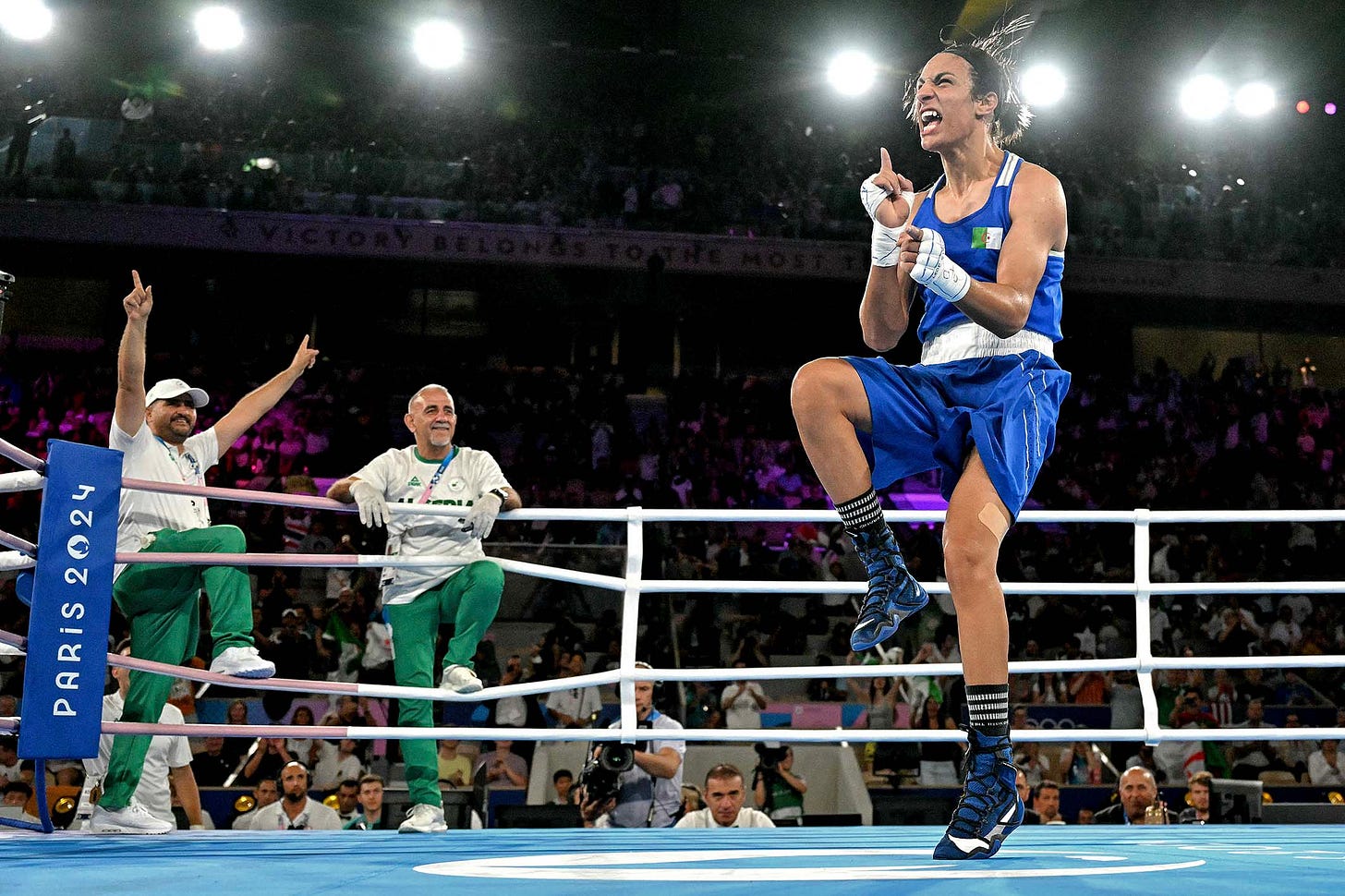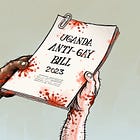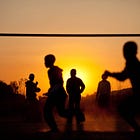Confusion, then defiance: Algeria rallies around Imane Khelif
Through no fault of her own, the boxer has been at the centre of the biggest controversy in the 2024 Olympics.
Madjid Serrah in Tizi-Ouzou

From a sporting perspective, this has been a good Olympic Games for Algeria. The success of 17-year-old Kaylia Nemour is one of the feel-good stories of Paris 2024: when she won gold in the uneven bars, she became the first African gymnast to win any Olympic medal.
The boxer Imane Khelif is guaranteed a medal, too. On Friday night, she fought in the final of the welterweight division. The worst she could do was silver. But celebrations of Khelif’s sporting prowess have been overshadowed by accusations that she should not be eligible to compete in women’s boxing.
Khelif, along with Taiwanese boxer Lin Yu-ting, was disqualified in 2023 from the World Championship after the International Boxing Association said it conducted a sex chromosome test that ruled both athletes ineligible. The IBA said the pair “did not meet the required necessary eligibility criteria and were found to have competitive advantages over other female competitors”.
The International Olympic Committee took a different view. It had already suspended the IBA in 2019 over concerns around its finances, governance and ethics, and said recently that the decision to suspend Khelif and Yu-ting was “arbitrary” and “taken without any proper procedure”.
The controversy made international headlines after Khelif’s first fight in Paris, which lasted just 46 seconds. Her opponent, Italy’s Angela Carini, refused to shake Khelif’s hand, and said later that she had withdrawn for her own protection. Afterwards, prominent right-wing politicians (including Donald Trump) and anti-transgender influencers (like Harry Potter author JK Rowling) erroneously described Khelif as male or transgender – and used that description to invalidate her accomplishments. “We object because we saw a male punching a female,” Rowling said on social media.
In Algeria, the controversy was initially met with confusion. Khelif’s father Amar Khelif told local news outlets in her home town of Tiaret that his daughter was born female and has lived her entire life as a woman, sharing her birth certificate and pictures from her childhood. “Having such a daughter is an honour because she is a champion, she honoured me and I encourage her and I hope she will get the medal in Paris,” he told Reuters.
This is a socially conservative country, where being transgender is illegal and trans rights are rarely, if ever, discussed. “Imane fell victim to a global political context that goes beyond sports,” said Jugurtha Hanachi, a blogger from Khenchela, a city in the north-east. Hannachi was referring to the Western debate around trans rights, which has become increasingly charged, especially since far-right politicians like Trump and Nigel Farage in the United Kingdom have adopted anti-trans positions.
Since that first fight, Khelif has been subjected to a torrent of online abuse and hatred – much of it based on fake news and misinformation about her gender identity.
But Algerians have embraced her.
Mohamed Kamoun, a writer in Algiers, told The Continent that this is not surprising, given Algeria’s long history of anti-colonial struggles. “It is natural that we would support an Algerian citizen who felt oppressed and faced fierce attacks from the largest and most powerful media forces.”
Kamoun added: “She has shown that heroism transcends gender, echoing the legacy of our resistance fighters. Both men and women can be champions, and Khelif has made us proud of our belonging to this country.” In fact, Khelif’s dignified response to the controversy swirling around her has only made her more popular.
“Imane is a woman who deserves all our respect, and history will bear witness to that,” said Lynda Chemli, a resident of Tizi-Ouzou.
Amel Hadjadj, the founder of the Algerian Feminist Newspaper, observed that Khelif is not the first athlete to face such criticism, citing the examples of South African runner Caster Semenya and American tennis player Serena Williams.
“These accusations highlight an inability to accept the diversity of women’s bodies and a tendency to subject them to patriarchal standards,” Hadjadj said. “Gender testing and baseless accusations are merely tools to perpetuate sexism.”
For Amel Benaoudia, a martial artist on Algeria’s national Kempo team, all the noise and controversy makes Khelif’s medal-winning performances all the more remarkable. “An athlete cannot prepare adequately and compete under such pressure, which pushed her father to show the family register to defend her identity as having been born and lived as a girl. This is very harsh in a society like ours,” she said.





